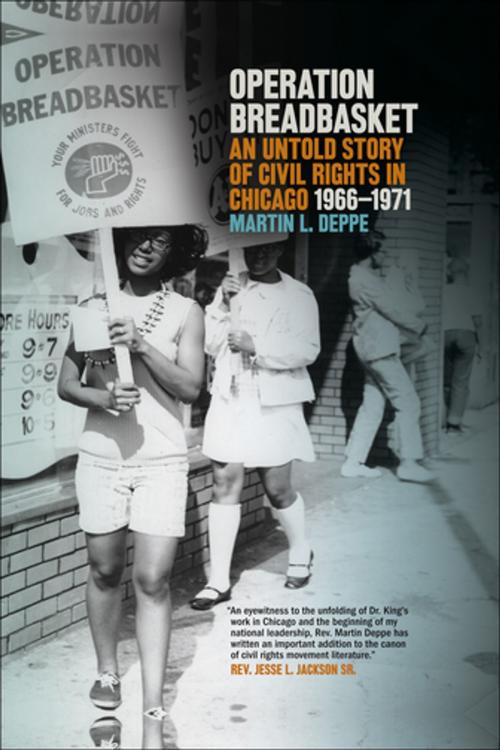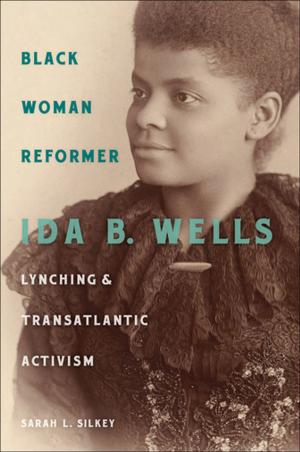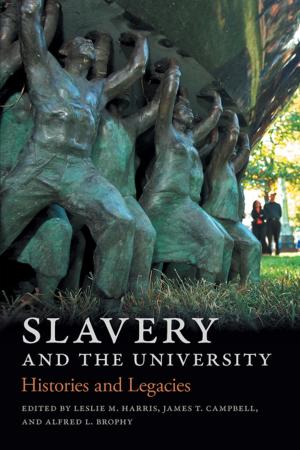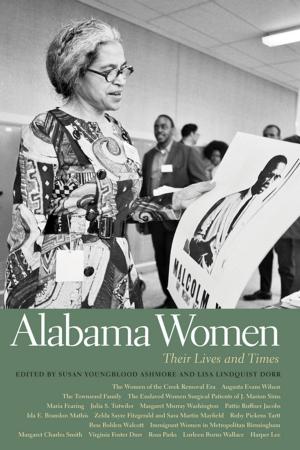Operation Breadbasket
An Untold Story of Civil Rights in Chicago, 1966–1971
Nonfiction, Social & Cultural Studies, Political Science, Politics, Civil Rights, Social Science, Discrimination & Race Relations, History, Americas, United States, 20th Century| Author: | Martin L. Deppe | ISBN: | 9780820350455 |
| Publisher: | University of Georgia Press | Publication: | February 1, 2017 |
| Imprint: | University of Georgia Press | Language: | English |
| Author: | Martin L. Deppe |
| ISBN: | 9780820350455 |
| Publisher: | University of Georgia Press |
| Publication: | February 1, 2017 |
| Imprint: | University of Georgia Press |
| Language: | English |
This is the first full history of Operation Breadbasket, the interfaith economic justice program that transformed into Jesse Jackson’s Operation PUSH (now the Rainbow PUSH Coalition). Begun by Martin Luther King Jr. during the 1966 Chicago Freedom Movement, Breadbasket was directed by Jackson. Author Martin L. Deppe was one of Breadbasket’s founding pastors. He digs deeply into the program’s past to update the meager narrative about Breadbasket, add details to King’s and Jackson’s roles, and tell Breadbasket’s little-known story.
Under the motto “Your Ministers Fight for Jobs and Rights,” the program put bread on the tables of the city’s African American families in the form of steady jobs. Deppe details how Breadbasket used the power of the pulpit to persuade businesses that sought black dollars to also employ a fair share of blacks. Though they favored negotiations, Breadbasket pastors also organized effective boycotts, as they did after one manager declared that he was “not about to let Negro preachers tell him what to do.” Over six years, Breadbasket’s efforts netted forty-five hundred jobs and sharply increased commerce involving black-owned businesses. Economic gains on Chicago’s South Side amounted to $57.5 million annually by 1971.
Deppe traces Breadbasket’s history from its early “Don’t Buy” campaigns through a string of achievements related to black employment and black-owned products, services, and businesses. To the emerging call for black power, Breadbasket offered a program that actually empowered the black community, helping it engage the mainstream economic powers on an equal footing. Deppe recounts plans for Breadbasket’s national expansion; its sponsored business expos; and the Saturday Breadbasket gatherings, a hugely popular black-pride forum. Deppe shows how the program evolved in response to growing pains, changing alliances, and the King assassination. Breadbasket’s rich history, as told here, offers a still-viable model for attaining economic justice today.
This is the first full history of Operation Breadbasket, the interfaith economic justice program that transformed into Jesse Jackson’s Operation PUSH (now the Rainbow PUSH Coalition). Begun by Martin Luther King Jr. during the 1966 Chicago Freedom Movement, Breadbasket was directed by Jackson. Author Martin L. Deppe was one of Breadbasket’s founding pastors. He digs deeply into the program’s past to update the meager narrative about Breadbasket, add details to King’s and Jackson’s roles, and tell Breadbasket’s little-known story.
Under the motto “Your Ministers Fight for Jobs and Rights,” the program put bread on the tables of the city’s African American families in the form of steady jobs. Deppe details how Breadbasket used the power of the pulpit to persuade businesses that sought black dollars to also employ a fair share of blacks. Though they favored negotiations, Breadbasket pastors also organized effective boycotts, as they did after one manager declared that he was “not about to let Negro preachers tell him what to do.” Over six years, Breadbasket’s efforts netted forty-five hundred jobs and sharply increased commerce involving black-owned businesses. Economic gains on Chicago’s South Side amounted to $57.5 million annually by 1971.
Deppe traces Breadbasket’s history from its early “Don’t Buy” campaigns through a string of achievements related to black employment and black-owned products, services, and businesses. To the emerging call for black power, Breadbasket offered a program that actually empowered the black community, helping it engage the mainstream economic powers on an equal footing. Deppe recounts plans for Breadbasket’s national expansion; its sponsored business expos; and the Saturday Breadbasket gatherings, a hugely popular black-pride forum. Deppe shows how the program evolved in response to growing pains, changing alliances, and the King assassination. Breadbasket’s rich history, as told here, offers a still-viable model for attaining economic justice today.















